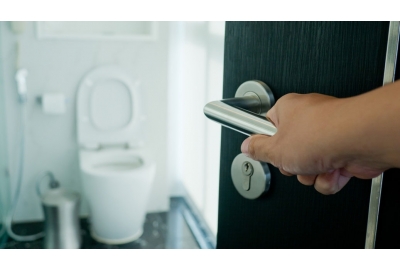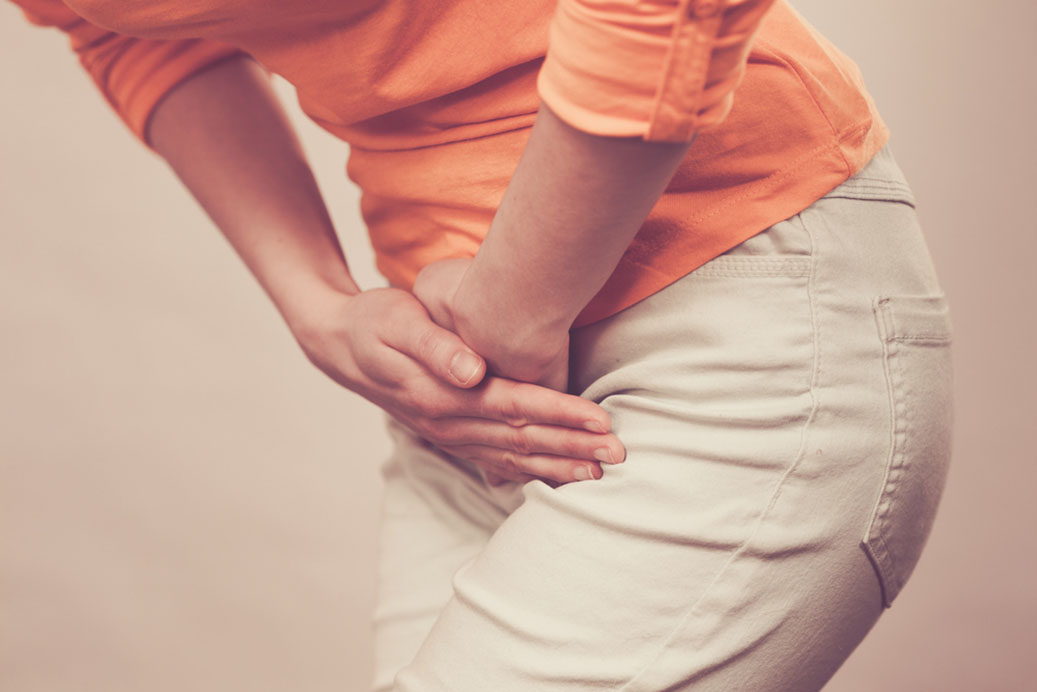
What Is Considered Frequent Urination?
You feel like you have to urinate a lot compared to other women you know. Don’t worry! We know the feeling. So, just how many bathroom breaks in a day is too many? In this guide, we’re answering all your questions about going to the bathroom too much, from what’s considered frequent urination to what you can do to stop it. Here’s what you need to know about frequent urination.

What is considered frequent urination?
Everyone’s body is a little bit different, but generally speaking, using the bathroom anywhere between six to eight times in a 24-hour period is considered normal. More than that is considered frequent urination, and so is going to the bathroom more than once a night. Consistency over time is also key to establishing frequent urination. Urinating 12 times in one day when you drank an entire gallon of water is a one-time occurrence — but if you have to use the restroom 12 times a day for a month, that’s probably frequent urination.
If you’re not sure whether or not you frequently urinate, track the number of times you use the bathroom over a week or so to see if you establish a pattern. Also, make a note of any potentially related symptoms you may be experiencing, such as burning while urinating, which can help you narrow down potential causes of your frequent bathroom stops.
Frequent urination can really interrupt your life, forcing you to use the bathroom at the most inconvenient moments. It can also cause a lot of stress around needing access to a bathroom at all times, or anxiety around the possibility of not being able to get to a bathroom when you need to. But you don’t have to let frequent urination ruin your life. There are steps you can take to get your bathroom habits back on track.

Is frequent urination the same as incontinence?
While frequent urination and incontinence are often mentioned together, and may occur at the same time, they are actually two separate issues. Incontinence refers to involuntary urination, which can result in bladder leakage. You may urinate frequently without having incontinence issues, or vice versa. If you struggle with incontinence, there are many incontinence products for women available, including Poise liners and Tena liners, that can give you the confidence to go about your day.
Shop All Sofia & Grace Incontinence Products for Women
What causes frequent urination?
There are many possible causes of frequent urination, including:
- Drinking too many fluids
- Consuming alcohol, caffeine, and other diuretics (i.e., substances that make you urinate more frequently than normal)
- Being pregnant
- Developing a urinary tract infection (UTI), vaginitis, or interstitial cystitis (IC)
- Having an overactive bladder (OAB)
- Getting bladder stones
- Having stress and anxiety
- Decreasing estrogen, such as during menopause
- Having weak pelvic floor muscles
- Developing diabetes
Several different causes may contribute to frequent urination, or it may mostly be caused by one factor. Some of these causes are more easily addressed than others — for example, it’s pretty simple to cut back on drinking diuretics (but please, don’t make us get rid of coffee completely!)
What can I do about frequent urination?
The first step to reducing frequent urination is determining the reason(s) why you are using the bathroom so much. Then, you can come up with a plan together that will tackle these causes. Some of the lifestyle changes your doctor may recommend include:
- Drinking less fluids in general
- Consuming less alcohol and caffeine
- Reducing fluid consumption before bed
- Practicing pelvic floor exercises to strengthen the muscles
- Following bladder training techniques
- Deep breathing techniques to reduce anxiety around urination

When should I see a doctor about frequent urination?
In some cases, you may be able to easily pinpoint the cause of your frequent urination (such as drinking too much water) and address it on your own. However, you should reach out to your doctor if you think the frequent urination is caused by a health condition such as a UTI or bladder stones. You should also contact your doctor if you’re experiencing any of the following symptoms:
- Pain during urination
- Feeling like you still have to urinate even after using the bathroom
- Smelly, cloudy, or bloody urine
- Unusual vaginal discharge
- Abdominal or back pain
- Fever, chills, or nausea
Talking to your doctor will help you get the most accurate diagnosis and develop the most effective treatment plan.
You don’t have to let frequent urination rule your life anymore. If you’re tired of spending so much time in the bathroom, talk to your doctor about possible causes of your frequent urination. And if you’re in need of some incontinence liners, be sure to shop our premium selection for discreet shipping.